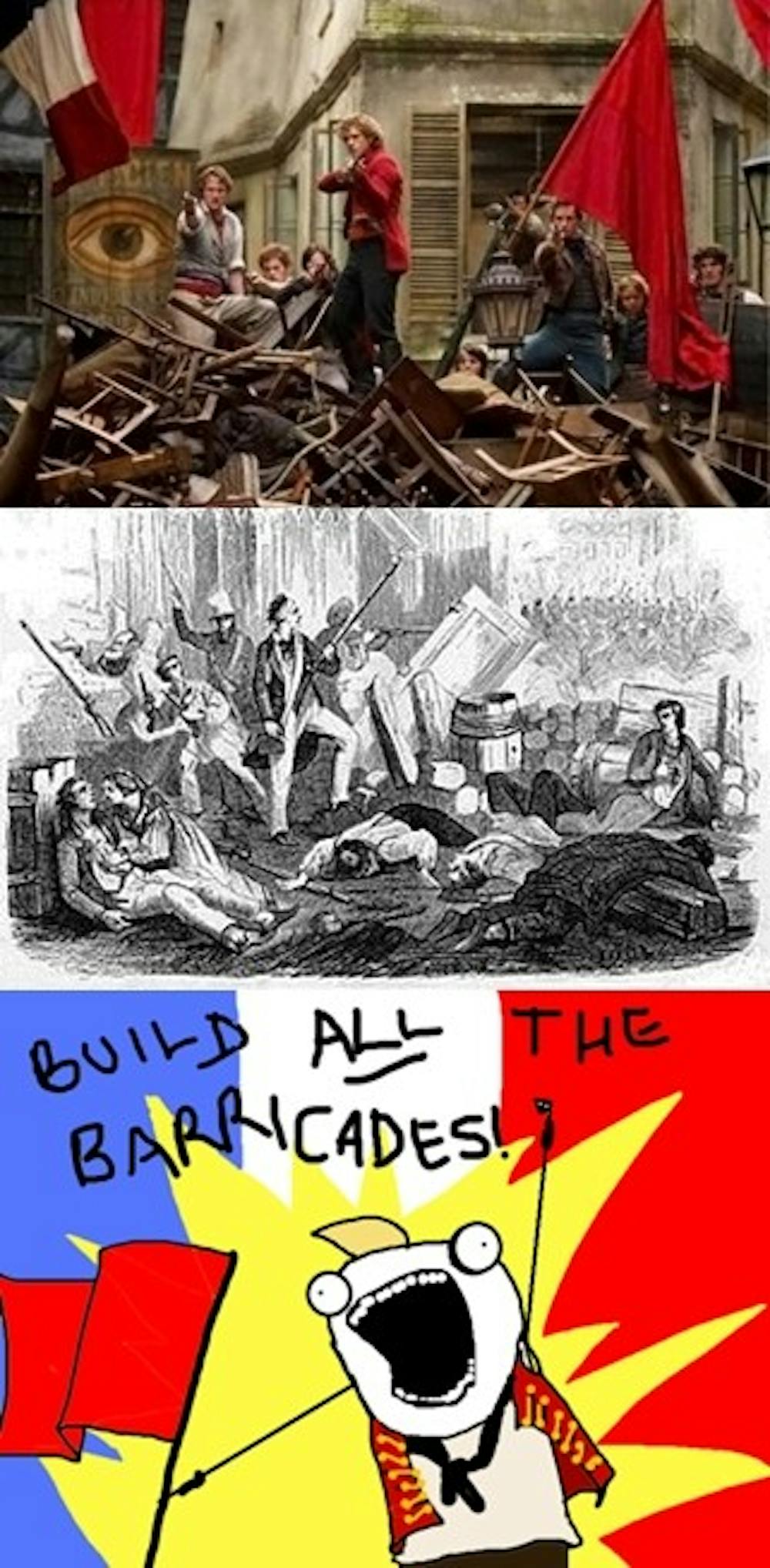Hey there, Holly here. The other day I was listening to the soundtrack for the film version of “Les Misérables.” It’s a hard task to find someone who hasn’t heard a song from the musical, let alone Anne Hathaway’s rendition of “I Dreamed a Dream.” This new movie musical sensation has been praised as one of the best adaptations of book to musical to movie to ever hit the United States. The musical was first conceptualized for the French stage, from Victor Hugo’s immensely political novel of the same name, by the French songwriter Alain Boublil and composer Claude-Michel Schönberg in 1980. An English re-working of the French version with new songs and scenes was created for the London stage in 1985 by Herbert Kretzmer and James Fenton. The first Broadway production of the musical hit the New York scene in 1987 with a few of the cast from the London production.
As one of the longest-running musicals, it was only a matter of time before it was transformed into a film adaptation. However, for many years, there was nothing. Rumors spread about directors and actors, but none were confirmed. Projects were scrapped and the hopes and dreams of the “Les Mis” fanbase were dashed. Until, that is, 2012, when reports surfaced that a “Les Misérables” film directed by Tom Hooper was in production. Suddenly, billboards went up everywhere and the face of Cossette was seen in movie trailers and television commercials across the world.
The sensation that is “Les Misérables” is mounting even further with eight academy award nominations including Best Motion Picture and Best Performance by an Actor in a Leading Role for Hugh Jackman and Best Actress in a Supporting Role for Anne Hathaway.
But, has anyone tried to read the book that started it all? The book centers on the politics after the French Revolution, and the state of the citizens of France. The musical also centers on the life of the poor citizens of France who are oppressed under the law and starving from the taxes, but is very much a character piece, rather than a political statement. However, the musical can give us an interesting insight into the lives of the French in this tumultuous time period.
I’m going to hand it off to Tom, who can tell you a little bit about the Paris Uprising that inspired it all.
 The Sons of the Barricade in the 2012 movie, in historical context, and in the minds of the fans. Photos courtesy Google Images, Wikipedia and Tumblr
The Sons of the Barricade in the 2012 movie, in historical context, and in the minds of the fans. Photos courtesy Google Images, Wikipedia and TumblrRED! The blood of angry men! BLACK! The dark of ages past!
One of my favorite songs from Les Mis is Red/Black sung by college-aged schoolboys discussing a revolution. This revolution however, is commonly mistaken for the French Revolution. The French Revolution started in 1789 and lasted for a decade. The bloody mess and guillotines as well as the now headless monarchs trademark the French Revolution.
The small rebellion in Les Mis is known as the June Rebellion, or more frequently as the Paris Uprising of 1832. In the novel, Victor Hugo goes into a very detailed and quite accurate account of the politics and history that to led Paris Uprising (which may be why it is such a drag to read … I mean yes it is a great book go read it).
I’ll spare you the dry details and give you the Sparknotes version. The uprising was coined by anti-monarch Republicans responding to the hardships of the time under the Louise Phillip Monarchy. It lasted two days (just a small outbreak of violence) and most likely would have been lost to history if not for Victor Hugo and his beloved characters. So now when your tears run dry from the constant sobbing in Les Misérables, you can tell your friends that this was, in fact, an insignificant event in France’s history that is not even a part of the school curriculum, except for maybe in drama class.
Want to chat about Javert’s complex character development or Hugh Jackman’s stunningly emotional portrayal of Jean Valjean, or even Anne Hathaway’s brilliantly depressing depiction of Fantine? Drop us a line at sparkysquill@gmail.com or find us on Twitter @sparkysquill




